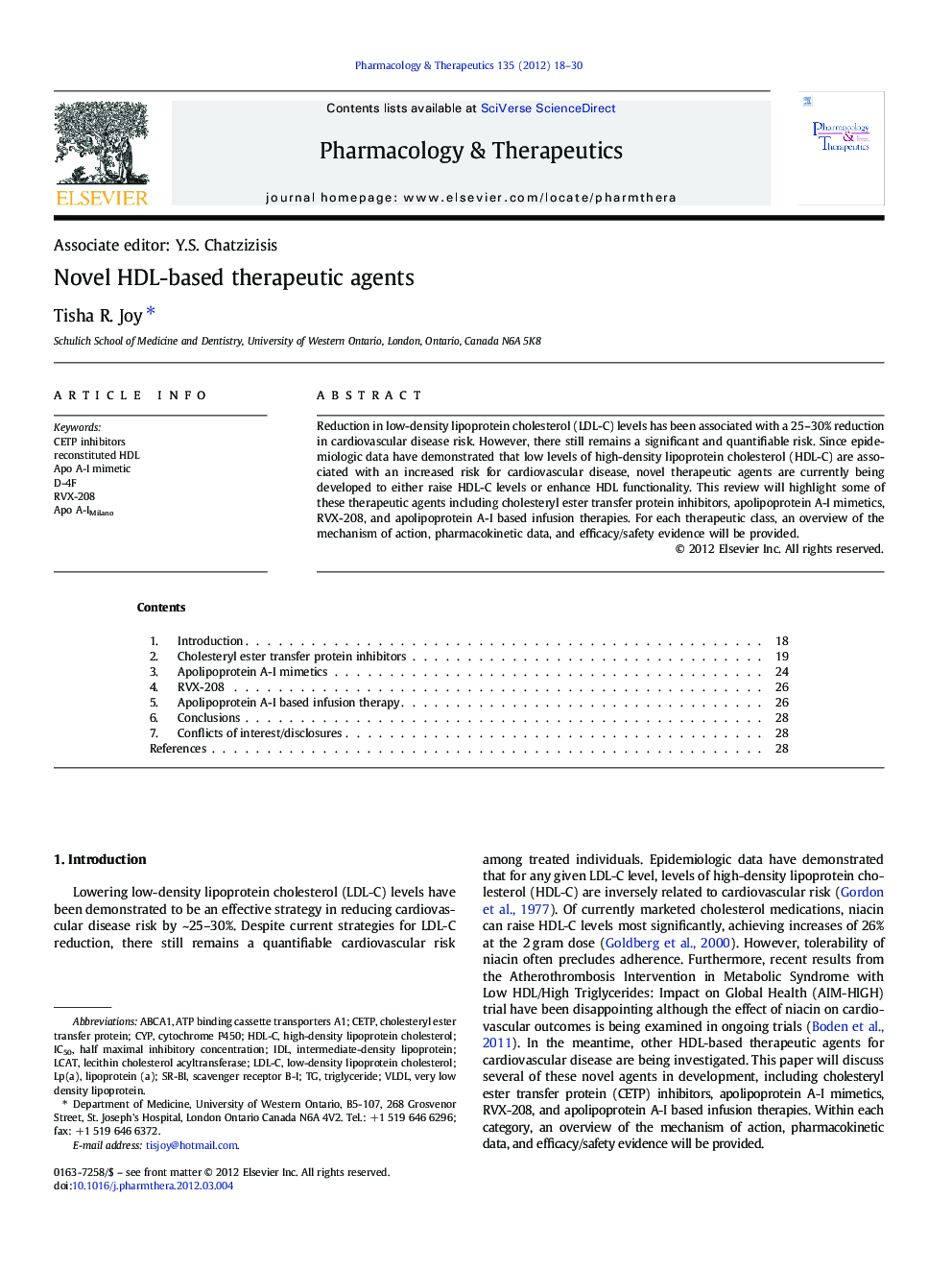| Article ID | Journal | Published Year | Pages | File Type |
|---|---|---|---|---|
| 2563305 | Pharmacology & Therapeutics | 2012 | 13 Pages |
Reduction in low-density lipoprotein cholesterol (LDL-C) levels has been associated with a 25–30% reduction in cardiovascular disease risk. However, there still remains a significant and quantifiable risk. Since epidemiologic data have demonstrated that low levels of high-density lipoprotein cholesterol (HDL-C) are associated with an increased risk for cardiovascular disease, novel therapeutic agents are currently being developed to either raise HDL-C levels or enhance HDL functionality. This review will highlight some of these therapeutic agents including cholesteryl ester transfer protein inhibitors, apolipoprotein A-I mimetics, RVX-208, and apolipoprotein A-I based infusion therapies. For each therapeutic class, an overview of the mechanism of action, pharmacokinetic data, and efficacy/safety evidence will be provided.
